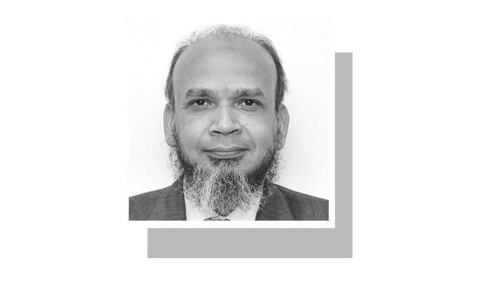ISLAMABAD: Half of the Asia-Pacific region’s workforce is poor or on the verge of poverty, surviving on $5.5 per day, according to a report released by the United Nations Economic and Social Commission for Asia and the Pacific (UNESCAP).
The UNESCAP report said that with more than half the region’s population excluded from any social protection, the workforce is highly vulnerable to systematic shocks such as pandemics or economic downturns.
The region’s workforce is insufficiently productive, healthy, and protected, although progress has been made since 2015, the report adds. The main reason is that two in three workers are employed informally. That is 1.4 billion workers, 600 million of whom are found in the agricultural sector, according to the “2022 Social Outlook for Asia and the Pacific: The Workforce We Need”.
It lacks adequate education and specialised skills needed to access opportunities emanating from global megatrends or overcome related challenges. Vulnerability undermines labour productivity, which has fallen below the global average. Sustainable livelihoods remain out of reach for many, particularly women and young people in rural areas, the report says.
Pakistan among 15 countries where women are more likely to have an informal job
Over half of employed women are in informal jobs in 16 out of 27 countries. Relative to men, women are also more likely to have an informal job in 15 countries. This gap is particularly high in Turkey, the Marshall Islands, Nepal, and Pakistan.
The absence of affordable health care is detrimental to the workforce’s health, productivity, and future economic output. In Asia and the Pacific, people in low and lower-middle-income countries can expect to die 13 years earlier than people in high-income countries, and child mortality rates are 10 times higher. The poor health of children in low and lower-middle-income countries is compounded by low investments in health care and education services.
This undermines the chances of the future workforce to find a decent job. It also hampers future tax revenues and economic output. Only a few countries in Asia and the Pacific have come close to Universal Health Coverage (UHC), and catastrophic out-of-pocket health spending threatens to push more people in our region into poverty than anywhere else. The inaccessibility of affordable health care increases sickness absenteeism and exacerbates poverty. It reduces the productivity of the workforce across the region.
Underinvestment in social protection and high labour-market informality mean illness and unemployment, pregnancy and old age, disability and injury, continue to push workers into poverty. The Covid-19 pandemic has provided evidence of the consequence of the lack of social protection. Eighty-five million unprotected people have been pushed into extreme poverty, living on less than $1.9 per day, and a further 158 million into moderate poverty, living on $3.2 a day.
Climate change, population ageing, and digitalisation are megatrends that could create opportunities for some workers and exacerbate the vulnerability of others.
Published in Dawn, September 7th, 2022














































